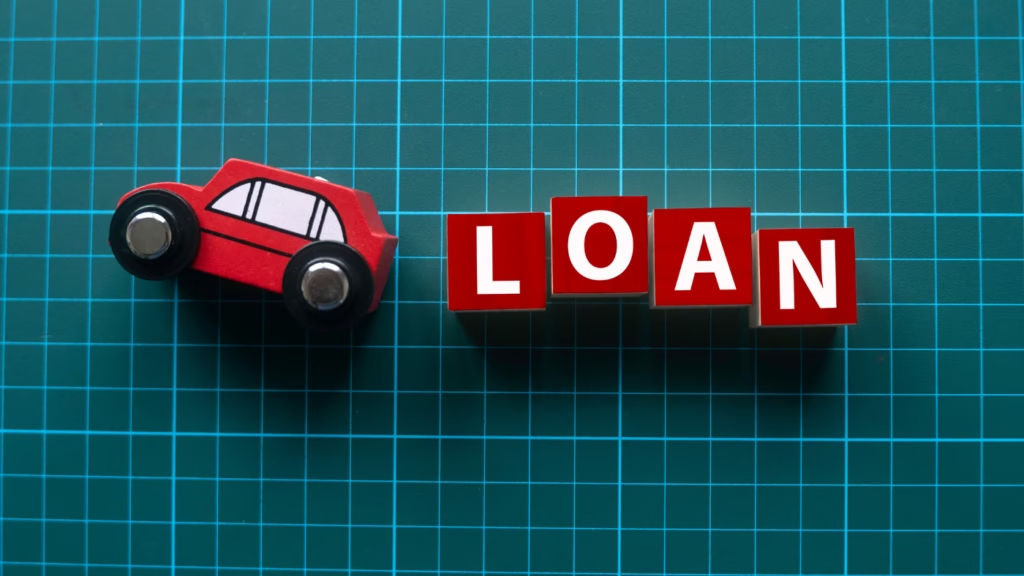Introduction
Purchasing a vehicle is a significant financial decision, and for many Canadians, car loan comparison in Canada is the first step toward securing affordable financing. With numerous lenders offering varying interest rates, terms, and conditions, comparing car loans ensures you find the best deal tailored to your needs. Whether you’re eyeing a new car, a used vehicle, or exploring options despite a less-than-perfect credit score, understanding the car loan landscape can save you money and stress.
This guide dives into the essentials of car loans, offering insights on how to compare options effectively, use tools like car loan calculators, and navigate challenges like bad credit car loans in Canada. For a streamlined comparison process, platforms like Quick Approvals can help you explore multiple lenders quickly. We’ll also reference authoritative resources, such as the Government of Canada, to provide reliable information.
Understanding Car Loans in Canada

What Is a Car Loan?
A car loan is a type of financing that allows you to purchase a vehicle by borrowing money from a lender, which you repay over time with interest. In Canada, car loans are typically secured by the vehicle, meaning the lender can repossess the car if payments are missed. This security often results in lower interest rates compared to unsecured personal loans.
Types of Car Loans
- New Car Loans: Designed for brand-new vehicles, these loans often feature new car loan rates in Canada ranging from 0% to 7.5% for borrowers with good credit, especially during promotional offers.
- Used Car Loans: For pre-owned vehicles, used car loan rates in Canada are typically higher, ranging from 8% to 10%, due to the increased risk associated with older cars.
- Lease Buyout Loans: These allow you to purchase a leased vehicle at the end of the lease term.
- Refinancing Loans: These replace an existing car loan with new terms, potentially lowering your interest rate or monthly payments.
- Bad Credit Car Loans: Tailored for those with lower credit scores, these loans come with higher rates, often between 12.9% and 29.99%.
Fixed vs. Variable Rates
Car loans in Canada typically have fixed interest rates, ensuring consistent monthly payments. Variable rates, tied to the lender’s prime rate, are less common but may fluctuate with the Bank of Canada’s policy rate, affecting your payments over time.
Amortization Periods
Loan terms range from 12 to 96 months. Shorter terms mean higher monthly payments but lower total interest, while longer terms reduce monthly payments but increase overall costs. For example, a $30,000 loan at 5% over 36 months results in monthly payments of approximately $909.56 and total interest of $2,744.16, whereas a 72-month term lowers payments to $479.64 but increases interest to $5,434.08.
Factors Affecting Car Loan Rates in Canada
Several factors influence the interest rate you receive:
- Credit Score: A score above 700 often secures best car loan rates in Canada, while scores below 650 may lead to higher rates or bad credit car loans Canada.
- Down Payment: A larger down payment reduces the loan amount, potentially lowering the interest rate.
- Loan Term: Shorter terms typically have lower rates but higher monthly payments.
- Vehicle Type and Age: New cars and reliable models often qualify for lower rates, while older or used vehicles may have higher used car loan rates in Canada.
- Market Conditions: The Bank of Canada’s policy rate, currently at 2.75% as of June 2025, influences lender rates.
Improving your credit score by paying bills on time and reducing debt can help you secure better rates.
How to Effectively Compare Car Loans in Canada
Types of Lenders: car loan comparison in Canada
- Banks: Major banks like CIBC, TD, RBC, BMO, and Scotiabank offer competitive rates, often starting at 7.2% for those with strong credit.
- Credit Unions: These may provide lower rates and personalized service, ideal for members with good credit.
- Online Lenders: Platforms like Loans Canada and Spring Financial offer quick approvals and cater to various credit profiles.
- Dealerships: Many partner with banks to offer financing, sometimes with promotional rates like 0% on select models.
Pros and Cons
| Lender Type | Pros | Cons |
|---|---|---|
| Banks | Competitive rates, established reputation | Stricter credit requirements |
| Credit Unions | Lower rates, member-focused | Limited availability |
| Online Lenders | Fast approvals, flexible credit options | Higher rates for bad credit |
| Dealerships | Convenience, promotional offers | Potential for higher rates |
Comparison Tips
- Get Pre-Approved: Pre-approval gives you a clear budget and strengthens your negotiating power.
- Compare APRs: The Annual Percentage Rate includes interest and fees, providing a true cost comparison.
- Check Terms: Look for flexibility, such as no prepayment penalties or payment skips.
- Use platforms like Quick Approvals to compare multiple offers efficiently.
Securing the Best Car Loan Rates in Canada
To get the lowest rates: car loan comparison in Canada
- Improve Your Credit: Pay down debts and correct credit report errors.
- Shop Around: Obtain quotes from banks, credit unions, and online lenders.
- Negotiate: Use competing offers to negotiate better terms.
- Look for Promotions: Manufacturers like Ford and Nissan offer 0% financing on models like the 2025 F-150 or Rogue SL.
- Increase Down Payment: A larger down payment can lower your rate and loan amount.
For example, a borrower with a 750 credit score financing a $30,000 new car with a 20% down payment might secure a 4.5% rate, resulting in lower payments than someone with a 600 score.
Using a Car Loan Calculator in Canada

A car loan calculator Canada helps estimate monthly payments and total interest. To use one:
- Enter the loan amount (vehicle price minus down payment).
- Input the interest rate.
- Select the loan term.
- Review the estimated monthly payment and total cost.
For instance, a $25,000 loan at 5% over 60 months yields monthly payments of about $471.78 and total interest of $3,306.80. Calculators are available on bank websites, such as CIBC’s, or comparison platforms.
Navigating Bad Credit Car Loans in Canada

What Are They?
Bad credit car loans Canada are designed for borrowers with credit scores below 650 or past financial issues. These loans often have higher interest rates, ranging from 12.9% to 29.99%, due to increased lender risk.
How to Qualify
- Provide Documentation: Proof of income, employment, and residence may be required.
- Consider a Co-Signer: A co-signer with good credit can improve approval chances.
- Choose Specialized Lenders: Companies like Spring Financial offer rates starting at 9.99% for bad credit borrowers.
Tips
- Compare offers carefully to avoid predatory lenders.
- Ensure payments fit your budget to prevent default.
- Work on improving your credit for better future rates.
Current Car Loan Interest Rates in Canada
As of March 2025, the average car loan interest rate in Canada was 6.86%, according to Statistics Canada, as reported by Finder Canada. Rates vary by borrower and vehicle type:
- New Cars: 0% to 7.5% for good credit, with promotional offers like 0% on the 2025 Ford F-150.
- Used Cars: 8% to 10%, with some certified pre-owned offers as low as 2.99% from Nissan.
- Bad Credit: 12.9% to 29.99%, depending on the lender and credit profile.
The Bank of Canada’s policy rate, currently 2.75%, influences these rates, and further cuts may lower car loan rates in 2025.
Financing Electric Vehicles in Canada
With growing interest in sustainability, electric car loans Canada are gaining popularity. These loans often come with special incentives:
- Government Rebates: The federal government offers up to $5,000 for electric vehicle purchases, reducing the loan amount.
- Promotional Rates: Banks like CIBC provide lower rates for electric or hybrid vehicles, sometimes including EV charging station financing.
- Longer Terms: Due to higher upfront costs, terms up to 96 months are common.
When comparing EV loans, consider fuel and maintenance savings, which can offset higher initial costs.
Applying for a Car Loan in Canada
Steps to Apply
- Check Your Credit: Review your credit score to understand your rate eligibility.
- Get Pre-Approved: Apply for pre-approval to set a budget and negotiate better terms.
- Gather Documents: Provide ID, proof of income (e.g., pay stubs), and vehicle details.
- Select a Vehicle: Choose a car within your budget.
- Finalize the Loan: Submit the bill of sale and insurance proof to complete the application.
Tips for Success
- Ensure your credit report is accurate.
- Apply through multiple lenders to compare offers.
- Use platforms like Quick Approvals for quick comparisons.
Common Mistakes to Avoid When Seeking a Car Loan in Canada

- Not Checking Credit: Failing to know your score can lead to unexpected rates.
- Focusing Only on Payments: Low monthly payments may hide high interest costs.
- Not Comparing Offers: Accepting the first offer can result in higher costs.
- Ignoring Fees: Watch for origination fees or prepayment penalties.
- Overextending Budget: Ensure payments are affordable to avoid financial strain.
Car Loan Comparison Table
| Loan Term (Months) | Monthly Payment ($30,000 at 5%) | Total Interest Paid |
|---|---|---|
| 36 | $909.56 | $2,744.16 |
| 48 | $690.63 | $3,650.24 |
| 60 | $565.77 | $4,546.20 |
| 72 | $479.64 | $5,434.08 |
Note: Calculations are approximate and for illustrative purposes.
Q&A: Common Questions About Car Loan Comparison in Canada
Q1: What Are the Best Car Loan Rates in Canada?

The best car loan rates in Canada depend on your credit score and the vehicle. As of June 2025, promotional offers include 0% financing on models like the 2025 Ford F-150 for 72 months. Banks like TD offer rates from 1.15% for select models, while credit unions like Vancity provide 5.95% for EVs. Comparing offers through Quick Approvals can help you find the lowest rates.
Q2: How Can I Compare Car Loans in Canada Effectively?

To compare car loans in Canada, focus on APR, loan terms, and fees. Get pre-approved to know your budget, and use online platforms to review multiple offers. Check for flexibility, like no prepayment penalties, and consider both banks and dealerships for promotional rates. The Government of Canada offers guidance on comparing financing options.
Q3: What Is a Car Loan Calculator Canada, and How Does It Work?

A car loan calculator Canada estimates monthly payments and total interest based on loan amount, rate, and term. Input these details to see how changes, like a larger down payment, affect costs. For example, a $25,000 loan at 5% over 60 months results in payments of about $471.78. Calculators are available on bank websites and comparison platforms.
Q4: Are There Options for Bad Credit Car Loans in Canada?
Yes, bad credit car loans in Canada are available through specialized lenders like Spring Financial, with rates from 9.99% to 34.95%. You may need extra documentation or a co-signer. Comparing offers is crucial to avoid high rates, and improving your credit can lead to better terms in the future.
Q5: What Is the Average Car Loan Interest Rate in Canada?
The average car loan interest rate in Canada was 6.86% in March 2025, per Statistics Canada, as reported by Finder Canada. Rates range from 0% for promotional offers to 29.99% for bad credit loans, depending on credit score and vehicle type.
Conclusion
Navigating car loan comparison in Canada is crucial for securing affordable financing that aligns with your financial goals. By understanding loan types, comparing lenders, and using tools like car loan calculators, you can make informed decisions that save money. Whether you’re seeking best car loan rates in Canada, exploring bad credit car loans Canada, or financing an electric vehicle, thorough research is key. Visit Quick Approvals to compare offers and explore authoritative resources like the Government of Canada for additional guidance.


